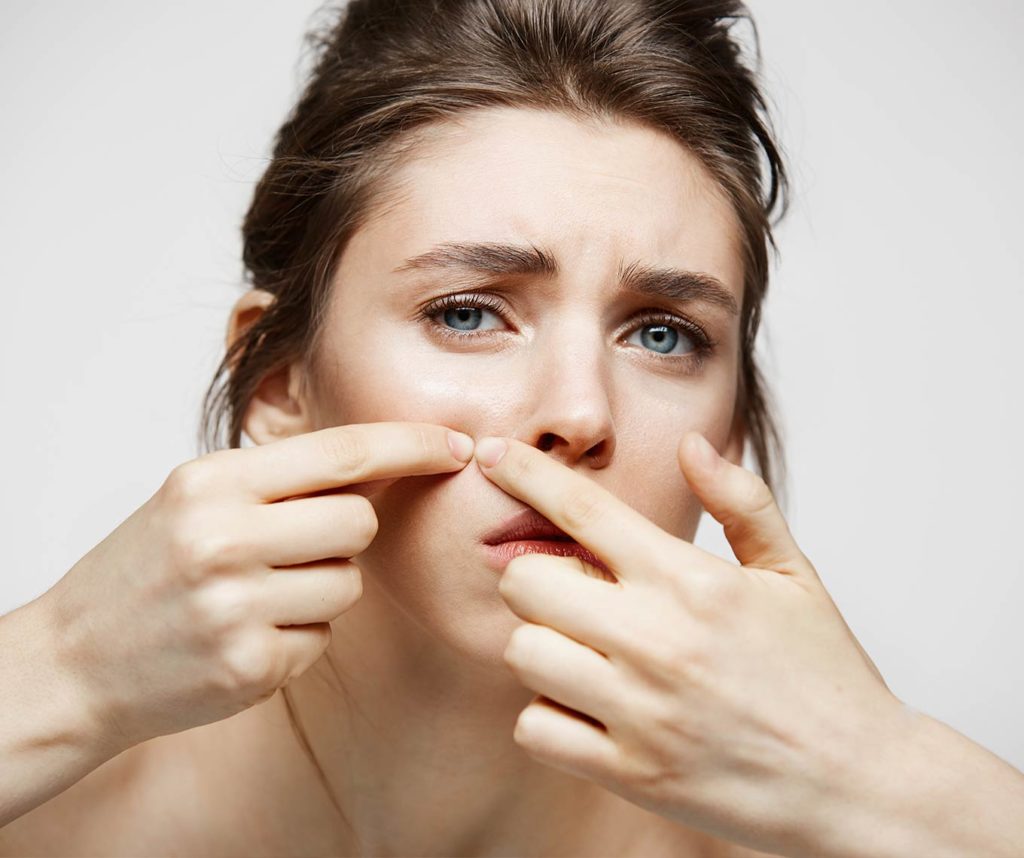When we talk about COVID-19, wearing a mask helps to keep us healthy. But even though this mask helps, it can also have side effects in our skin, leading to irritations or acne.
It does not matter if the skin is perfectly clean or if it is regular to get breakouts, the use of the mask will provide acne. However, we should not stop wearing face masks, due to this, we feel annoyed and terrified by the acne caused by these ones. But why is it happening? How can we get rid of this situation?

Why do masks cause irritation and acne?
Wearing a face mask is one of the best ways to reduce the spread of COVID-19. Due to this, wearing masks in public has become regular, our new normal way to be able to go out, and feel safe.
One study in China showed that frontline health care workers were especially susceptible to skin issues related to mask-wearing. However, putting on a mask to make some purchases or walk through the street could still have an impact on the skin.
The friction between the mask and skin can cause acne. Masks trap moisture, oil, sweat, and dirt close to our skin. This is why acne and irritation appear after using them for a while. Also, our habits engaging in while wearing masks can exacerbate the problem, masks tend to move and we usually touch our face to adjust them, leaving dirt or other irritants on our skin.
Even the simple act of breathing can be a complication because breathing into the mask increases moisture. All these actions may overgrown bacterias, which can create acne, rosacea, and irritation.
How to get rid of acne?
Masks are vital to reduce the spread of coronavirus, due to this we can not stop using them. However, according to the American Academy of Dermatology Association, we can avoid skin problems caused by a mask with these tips:
- Wear the right mask
You will be able to reduce skin problems if you use masks that offer:
- Comfortable fit.
- In case of sensible and oily skin, use a cotton material inside.
- Natural, soft, and breathable fabric material. It can also be cotton.
- A snug fit.
This way you will reduce skin problems, and it also helps to protect you from coronavirus.
You must avoid touching your face. If the mask slides around your face, you’ll be more likely to adjust it, and this way, germs will be transferred to your skin. Also, if the mask feels too tight, it can irritate your skin.
- Take a 15-minute break every 4 hours
Taking a break every 4 hours helps to reduce skin problems. Before taking the break, you must wash your hands, after you can remove the mask. The best and safe places to remove your mask include:
- Home
- Inside the car (if you are alone)
- It is safe to do it outdoors, only if you can stay at six feet away from people
- Consult a dermatologist
It is necessary to consult your doctor for treatment. Especially if you have a skin condition, such as acne, pimples, or rosacea.
Follow your specialist treatment to keep the condition under control.
- Use fewer skincare products
In the case of sensitive skin, avoid certain skincare products.
At the time you cover your face with a mask, some skincare products may irritate your skin. If this is your case, do not doubt it and cut them off. Consult your dermatologist before making decisions, some products or treatments may also help you to get rid or reduce them.
- Wash the cloth masks
Cloth masks should be washed after its use. Washing them will remove oils and skin cells that collect inside the mask, which could lead the skin problems.
Before, be sure to:
- Use hypoallergenic laundry detergent.
- Review the instructions of your mask, if it is allowed to, wash it with hot water
We can’t avoid face masks, but we can avoid acne caused by these ones. Try to follow the tips mentioned before and don’t forget to consult a dermatologist if you develop problems under the mask.

Thanks to Dr. Araceli Barrera Jacome, dermatologist who reviewed and verified this article. She graduated from the National Autonomous University of Mexico with a Bachelor’s Degree as Surgeon, she has a Specialty in Dermatology from the University of Guadalajara and a Specialty in Dermatopathology from the National Autonomous University of Mexico.
References:
- American Academy of Dermatology Association
- Journal of American Academy of Dermatology
- The Washington Post


